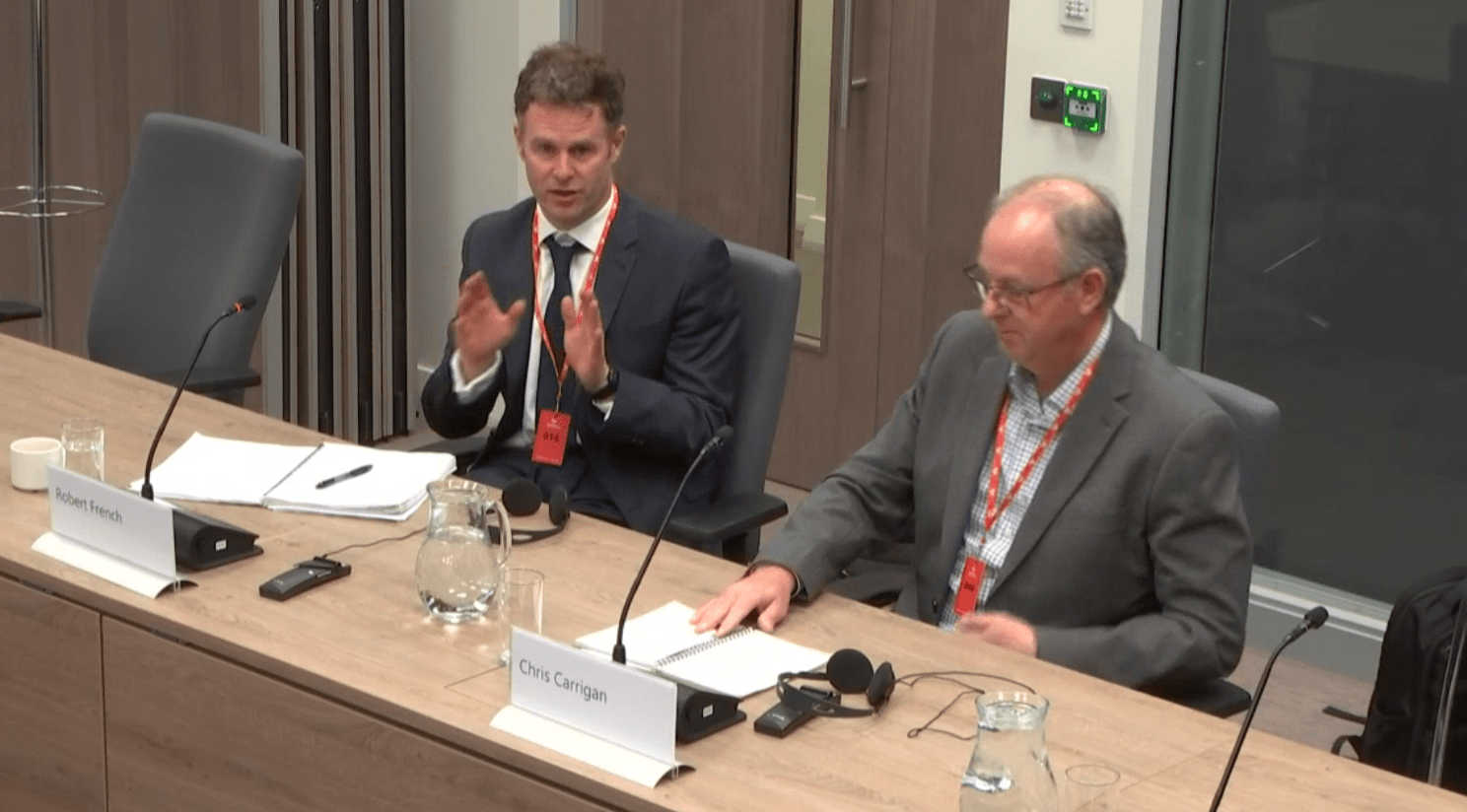use MY data’s evidence to the Welsh Government’s Equality and Social Justice Committee on the topic of ‘Data Justice and the use of personal data by the Welsh NHS’
Monday, March 27, 2023
Welsh Senedd Building, Cardiff
Background
use MY data was invited to give evidence to the Welsh Government’s Equality and Social Justice Committee inquiry into Data Justice and the use of personal data by the Welsh NHS.
The invitation followed our response to the consultation Health and Care Research Wales "Research matters: our plan for improving health and care research in Wales” in December 2022.
Our Associate Member and Senior Research Fellow at Cardiff University, Dr Robert French, who has been helping to implement use MY data’s principles in research, joined our Expert Data Adviser, Chris Carrigan, to give evidence on behalf of use MY data.
The process of giving evidence
As is not uncommon with committee sessions like this, speakers are given limited guidance on what questions might be asked, which can be anything within the scope of the title of the session.
During the evidence session Rob and Chris focused on use MY data’s principles, Position Statements and Calls to Action and how these might apply to the issues the committee had been interested in and the current topics in data for Wales.
There evidence highlighted the need for transparency in uses of data, independent scrutiny, communication of the benefits of data use, the need for a person’s access to their own data and patient choice about how their own confidential patient data is used (including opt outs).
Some specific areas highlighted during the session.
Transparency
We were asked about how we can improve transparency on data usage in Wales. We emphasised use MY data’s:
Patient choice about uses of their confidential patient information
We were asked for our input on the potential introduction of a way for Welsh patients to opt out of their health data being used for research in the same way patients in England can. We emphasised that patient choice is a good thing, but that proactive work to inform patients is essential to engender public support and understanding at the outset. It’s impossible to make an informed decision about whether you want your data to be used, unless you know how it might be used, the benefits to other patents and any potential risk.
Accessing your own health record(s)
We were asked about the balance between the amounts of money put into systems to make our data available for analysts and researchers compared with the amounts put to support patient’s access to their own data.
We highlighted the importance of both of these streams of work, but flagged the challenges described by our Members in accessing their own data. Patients need access to be able to manage their own healthcare and highlight inaccurate or missing data, which would in turn be a significant benefit for researchers who currently spend large amounts of their time ‘cleaning’ inaccurate or missing data.
How well is data currently used in Wales?
We emphasised the challenges in exploiting the vast amounts of data now produced, including how data is recorded, how data is stored, communication of how data is used and the benefits of those usages.
Examples of how patients can be truly involved in decisions about data use
We cited the STEADFAST research project in Wales which asked 80 young people about the types of organisations they would be happy to share their data with, which emphasised that communication and transparency of data uses was particularly important for organisations that traditionally have less public trust.
How representative are the data?
This was an interesting question.
Most of the administrative data in the SAIL databank is fairly representative of the population and statisticians have mature methods to cope with missing data.
We highlighted that there is underrepresentation of certain communities in engagement activities and the challenges in addressing that. We also highlighted that even where data exists, the process of a researcher obtaining access to the data to undertake research can be extremely slow. This impacts significantly on projects such as the Diabetes and Education project causing delays in accessing the most recent data in a timely way.
Culling of data
Whilst this was a very wide question and therefore difficult to answer specifically, we took this as an opportunity to consider the future, mentioning the digital footprint of younger generations.
The session concluded with the Chair thanking all the speakers for their time and insights. The Senedd plan to produce a report.
The recording and draft transcript of the session are available here.
